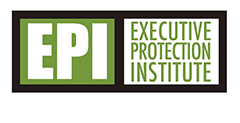I attended the Executive Protection Institute‘s Protectors Pistol Course in the fall after I had completed their 7-day Providing Executive Protection Program earlier in the spring. Before the course, I had a fair amount of firearms training through a law enforcement academy and local firearms classes. I decided that I wanted to continue to train and develop myself through EPI’s classes after completing their Providing Executive Protection Program and having such a positive experience with the program. My expectations were set very high going into the Protectors Pistol Course.
Safety was paramount during the course. Never at one time did I ever feel unsafe, which is something that I cannot say about other classes I have taken in the past. The first day of the program focused on range safety and the basics, which is to be expected, but EPI took it to a new level. They introduced a theory into their program that I was not familiar with. This theory took an in-depth look at the psychology behind shooting and gave advice on how to overcome several situations experienced by all shooters. As with all other EPI programs, the cadre of instructors was filled with experienced professionals, who have put the same tactics on the line during their careers.
The following day, I was able to put this theory into practice. I have a tendency to “think too much” at times and this process helped me to focus on the task at hand, and not so much the individual sight alignment. One of the first things I noticed about the instructors was their willingness to accept other techniques students have become accustomed to in the past. As long as a student was operating safely, they were not forced to change their muscle memory. If an instructor noticed how they could improve their technique, however, the student was shown an alternative method, and was encouraged to use it.
The course also focused on accuracy, immediate action drills and malfunctions, dim light firing, holsters and equipment, legalities, various shooting positions including protective tactics during firearms engagement and a firearms qualification for handgun, advanced handgun and shotgun. I was especially surprised that the advanced handgun qualification requirement was a higher level of accuracy than I had to achieve for law enforcement firearms qualification in my state.
I had always considered myself to being able to obtain a decent level of accuracy before the course. By the end of the class, however, I had achieved and advanced to an entirely new level of speed and precision. My high expectations were exceeded by a far margin! After returning to my home state and attending a local firearms course through a group I had previously trained with, they noticed the improvement right away and immediately asked me what I had done differently. It wasn’t a new firearm, or some modifications done to my firearm, it was a five-day course through the Executive Protection Institute. After attending my original class, I continue to return to their classes at least once a year, not just to re-qualify, but to brush up on my skills and network with the other professionals.
Nathaniel Smith, PPS
Nine Lives Associates Member


